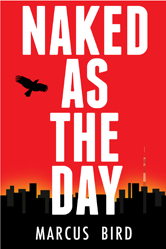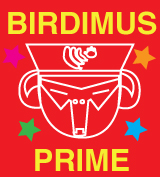I’m on my way to Nagoya.
I’m in the Hamamatsu station, looking out for Kori, the guy I’m traveling with. My phone rings, and I hear a voice ask for me. “I am here, where are you?” he asks. I raise my hand. “Ah, I see you!” he shouts into the phone. I hang up and a short man with a very angular face runs up to me. His smile is so big it recedes into his face, making his eyes tiny and white. It frightens me for half a second.
“Are we ready to go?” he says.
“Yes.” I reply.
We go into his car, a small red vehicle , and drive off.
My Nagoya trip is the culmination of a few random events, and a few not so random events. One year ago, I went to the Cannes film festival. During the crazy two weeks that is Cannes, I was shooting a short film and somewhere during that, I ran into Daiki, a slim Japanese fellow with a calm demeanour. He was holding a small, expensive camera and helped us out with the shoot. At the time, I could barely communicate with him. My Japanese was below basic. Even so we still made a connection. “If I come to Japan, ” I said back then, “I’ll link you.”
Now, I’m making that link. Kori is Daiki’s friend who happens to live in Hamamatsu, where I live. Daiki is having a film event in Nagoya, and I’m tagging along for the ride.
Our first stop is small café where Kori buys some, onigiri. “This is Japanese fast-food.” He says. The café is at the foot of a small hill on the outskirts of Hamamatsu. Inside feels very comfortable and artistic, with the smell of incense and wood. I sit at the counter, and I pause.
I see a young woman busily making some food. She is tall, with lovely eyes and a face that reminds me of an actress I saw somewhere. Her skin is bronzed dark. As she moves, oblivious to me watching her, I feel like time stops. She is intensely focused on the food and moves around the kitchen expertly. Another woman, and they move in unison, occasionally chatting to each other about the food they are making. Then, she walks past, her green skirt swishing and swaying. I paused for a second and started breathing again. Her name was Umi, and she was beautiful.
I don’t often feel this way about women I meet initially, but this is the first time in a while I remember just staring at someone. Her outfit wasn’t risqué and she didn’t seem to have a shy bone in her. I was intrigued.
I chatted with Umi and the other lady in my most chill Japanese (meaning I spoke at a regular tone with no pauses) and found that they were mother and daughter. They owned the establishment, which made a select set of clothes along with food. “I’m a designer as well.” I told them. The mother seemed very impressed. “Her name means beach,” her mother told me, in reference to Umi. “I know.” I replied as I left.
We hit the road, leaving Umi in our wake.
* * * *
One of the most interesting things about traveling are the experiences you have meeting people. For, me conversation is always the treasure. When I was in Germany, I chatted with a politician about his music (he was a part-time house DJ). Today I’m talking to Kori about religion.
“What is your religion? If you don’t mind?” he asks. I tell him that things are mixed in the way I grew up, that Jamaican is a relatively conservative (yet not ) conservative society and my perspectives shifted as time passed. Like anyone, I said, I’m still searching. Kori was similar. He had spent ten years traveling through different countries. He loved rock and Jazz. “ACDC is the best ever!” he said to me with his super smile. He had the sinewy, wired body of a person who is very active. This was confirmed when he told me he was a surfer. “I went to Australia for school, but then I realized that surfing is my life.” He said. His English is very good, and I asked him where he studied. “Listening to music is one of the best ways to learn language,” he said. “Axle Rose was my first English teacher.”
His car was a mirror of his lifestyle. A guitar was wedged in between a tattered biker jacket and a skateboard in the back seat. Beside the skateboard was a mid-sized plastic box was filled with CDs and minidiscs. Rock paraphernalia, little cups and empty boxes of cigarettes were everywhere. We drove along the highway listening to Kyioushiro, (the Japanese John Lennon). Every twenty-five minutes we made stops. “I have to get coffee.” He would say with a laugh.
We listened to ACDC’s back in Black, a Lenny Kravitz CD and Velvet Underground. I was getting a rock education from a Japanese surfer. When we reached Nagoya, we hung out on the roof of a SEIYU supermarket while we waited for Daiki to arrive at the Café where the film event was being held. Sayuu is a chain of large supermarkets in Japan. On the roof, I could see Nagoya’s landscape; a sea of angled roottops and cream colored buildings. Far away, I could see hills. The sky was a quiet blue and cotton ball clouds lazily coasted across the sky. I slept for a few minutes. I grabbed Kori’s skateboard and did a few lazy ollies, alternating between that an Mafia live on my Iphone.
Kori’s phone rings.
“It’s Daiki, ” he says. “He’s here.”
We hop back into the car and it comes to life with a growl. Ten seconds later, we are at the Café. I see Daiki, and remember him immediately. When I saw him the first time, he had a goate and a moustache, and was wearing what I’ve dubbed the Japanese “superV” t-shirts. Its like a V-neck, if a V-neck exposed your entire chest. Now he was clean shaven, but was instantly familiar. The last time I saw him was in France, now I was in his hometown in Japan. Life is funny.
We drink chai tea and catch up. The film event is a mixture of traditional Japanese story telling and Daiki’s Miru movement. The idea is simple. You shoot some video, and do one take. It has to be a minute long and silent. That’s Miru, or roughly translated, “Seeing”.
The presentation is in a studio beside the café, and I walk inside a quiet place with wooden floors. I’m instantly reminded of any dance movie I’ve ever watched, or old episodes of Fame. I take off my shoes and slip into some tiny indoor slippers. After a minute or two, I sneak to the bathroom to wash my feet. Even though I washed my socks a few days before, they were a tad smelly. I didn’t want to be the smelly foreigner. In the bathroom, it took me four minutes to figure out how to flush the toilet. There was a touch screen panel with instruction in Japanese, no less than ten buttons and and white exterior housing that resembled a large thermostat.
The toilets just get more complex and feature-ridden. I sneak back inside, (my feet smell like hand wash now) and I watch the first show. I’m not entirely sure what the story is about, but I think it had something to do with dragons that like oranges. A little girl cried throughout the entire performance. Daiki showed some Miru films, and we sat in silence for a few minutes, watching grainy videos on a large screen.
A play started, following the narration of a storybook illustrated by Eric Carl, the Canadian artist. It was an interesting experience. Afterwards, we ate curried chicken and chatted about nothing in particular.
The night was winding down and Kori said he probably wasn’t heading into the city. I have a rule about new cities; I cannot go into one without experiencing the night life. I did a quick change in the bathroom, slipping into the nice pants and a slim tee.
“You need to go to Sakae,” Kori told me. “That’s where people party.”
Like Tokyo the week before, I was ready to go. I wouldn’t be able to take a train back to that area in Nagoya until seven in the morning, so I had no choice but to have fun. Kori and Daiki dropped me to the station. He gave me some quick instructions on how to get to Sakae and I ran into the train. I was immediately lost, but a nice girl helped me figure out where I was, and where to go. In a few minutes I would be in Sakae, and it would be a great night.












